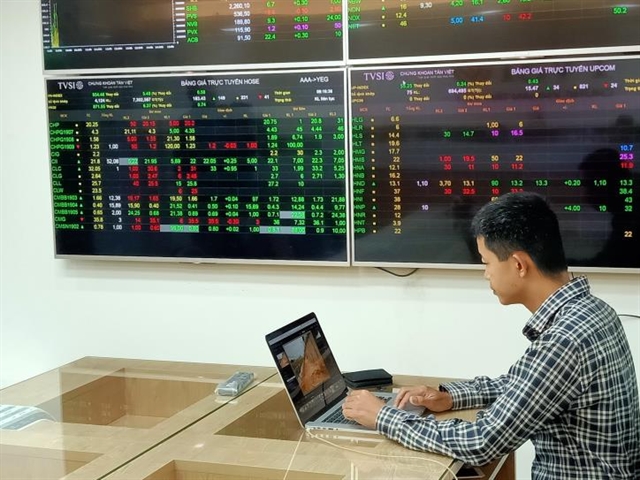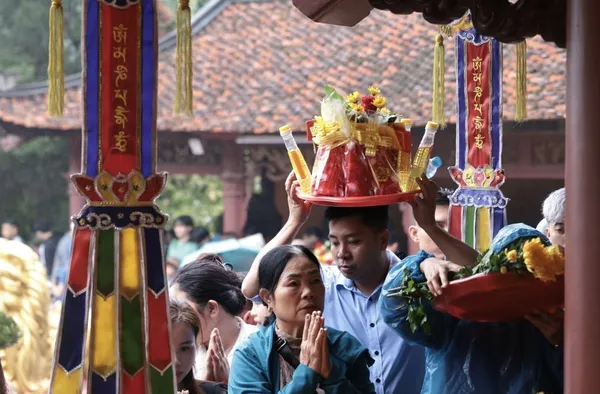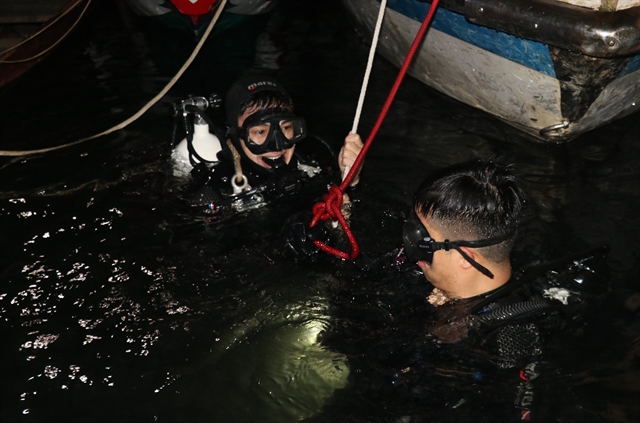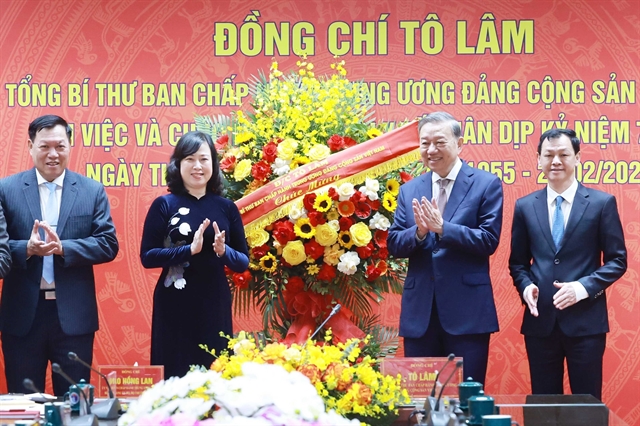 Politics & Law
Politics & Law
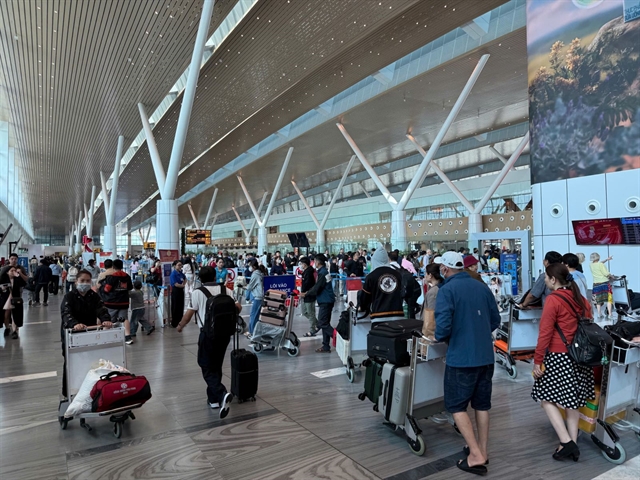
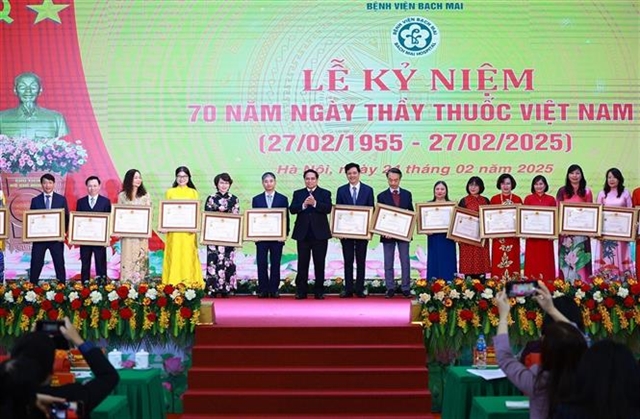 |
| Prime Minister Phạm Minh Chính presents the Meritorious Doctor title to doctors at Bạch Mai Hospital. VNA/VNS Photo |
HÀ NỘI — Prime Minister Phạm Minh Chính visited several medical establishments on Monday on the occasion of the Vietnamese Doctors’ Day (February 27), during which he stressed that the medical profession is a special occupation, and those working in this sector must meet both professional qualifications and ethical standards.
At a ceremony to mark the 70th anniversary of the Vietnamese Doctors' Day at Bạch Mai Hospital, on behalf of Party and State leaders, PM Chính awarded the "Meritorious Doctor" title to 25 individuals and the third-class Labour Order to two others.
He extended his warmest greetings to all Vietnamese medical professionals and those working at Bạch Mai Hospital in particular.
Established in 1911, Bạch Mai has become the largest medical examination and treatment facility in the country, a comprehensive general hospital, a centre for specialised and advanced medical techniques, and a leading institution for training medical human resources. It is honoured to be the first special-class hospital in Việt Nam.
Chính noted that although the healthcare sector has achieved significant and commendable accomplishments, there is still much work to be done to better meet the growing demands for medical check-ups, treatment, and health care, as well as to fulfill the expectations of the people and assert the country’s medical capabilities in the new era of the nation’s rise.
Therefore, in the coming period, the Government leader requested the Ministry of Health to direct the entire sector, including Bạch Mai Hospital, to thoroughly grasp and concretise the related guidelines and policies of the Party Central Committee, the Politburo, the Secretariat, and the National Assembly.
He urged the review and amendments of legal regulations to continue to address obstacles and shortcomings in drug procurement, bidding, and price negotiations to ensure transparency and openness.
There is also a need to swiftly propose the issuance of special policies for healthcare workers; reform policies on recruitment, training, utilisation, and remuneration; and encourage medical staff to work in remote, mountainous, and disadvantaged areas, he said.
Particularly, efforts must be intensified to better protect lives and improve public health care, ensuring that all citizens, especially those in remote areas, border regions, and islands, receive annual health check-ups.
Additionally, the pharmaceutical industry, medical equipment manufacturing, and national self-sufficiency in medicine and medical supplies should be robustly developed. Training of healthcare personnel, especially high-quality human resources, must follow the principle of being “profound in medical knowledge, rich in medical ethics, and excellent in medical skills.”
Moreover, the healthcare sector should apply scientific and technological advancements, promote innovation and digital transformation, and further boost international integration, stressed Chính.
On the same day, the Prime Minister visited the Vietnam Military Medical University, where he affirmed that after 76 years of development, the establishment has affirmed its role as one of the leading medical and pharmaceutical universities in the country, particularly in training high-quality healthcare personnel, conducting research in military medical and pharmaceutical sciences, transferring medical and pharmaceutical technologies, and serving as a high-quality treatment centre with clinical practice facilities for both the military and the nation.
He expressed his hope that the university will take the lead and excel in protecting and caring for the health and lives of military personnel and the public; conducting scientific research, particularly on diseases that are endemic or commonly occur among people and soldiers in ethnic minority-inhabited, mountainous, border, and island areas.
Additionally, it should focus on scientific research and the diagnosis, treatment, and prevention of diseases related to those doing international missions; continue to train high-quality human resources; maintain unity and solidarity; and strictly uphold discipline and regulations of the armed forces.
On this occasion, the Prime Minister inspected the medical examination and treatment activities and presented gifts to patients under treatment at Military Hospital 103. — VNS

